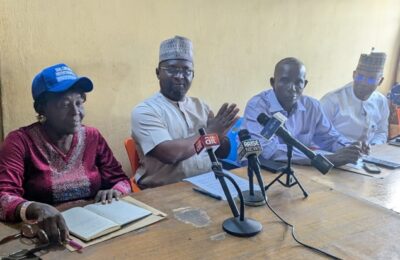When a voice finds resonance beyond its borders, it ceases to be an echo — it becomes a prophecy. Following the publication of “Igalaland in Travail: Awaiting the Rise of God-Fearing Leaders and True Patriots,” I received a message that struck the strings of my spirit, not as flattery, but as a divine affirmation that the cry of nations for moral and spiritual rebirth transcends geography.
“Hello, Mr. Boniface,” the message began. “I just read a piece written by you titled ‘Igalaland in Travail.’_ It speaks life to the moral decadence in our promising lands; as it is in Igalaland, so it is in Eggonland. However, there’s hope for a tree, as the Scripture said, that if it be cut down, it will sprout again. Though the roots decay, but because of scent of water it will bring forth bud that looks like a plant. With people like you positioned timely with pen and convictions, our lands will see light again.” — Paul Namo, from Lafia, Nasarawa State.
Those words came not as mere commendation but as a continuation of a divine conversation — a reminder that the travail of one land mirrors the travail of another, and that our collective redemption as a people is bound in shared repentance and renewal. Indeed, “there is hope for a tree, if it be cut down, that it will sprout again, and that the tender branch thereof will not cease” (Job 14:7). The scent of water — that symbol of grace and revival — is all our nations need to awaken from moral drought.
The moral decay that stains our lands — from Idah to Lafia, from Ankpa to Akwanga — is not the death of destiny, but the test of it. Every great civilization was once reduced to rubble before its renaissance. The prophetic imagery of “the scent of water” is both poetic and profound. It tells of divine mercy hovering over dry grounds; of God’s willingness to heal a people who have not entirely lost their roots. It speaks of nations that, though politically mutilated, can still spiritually regenerate.
As I reflected on Mr. Namo’s words, I realized that his reference to “pen and convictions” is not about me — it is about a movement of conscience that must sweep across our tribes, lifting men from apathy into moral action. The rebirth of Igalaland and Eggonland — and indeed Nigeria — will not come from the thunder of the masses, but from the quiet persistence of righteous pens and pure hearts. As Isaiah declared, “The Lord shall comfort Zion: He will comfort all her waste places, and He will make her wilderness like Eden, and her desert like the garden of the Lord” (Isaiah 51:3).
Our lands may have lost their moral fragrance, but God’s rain has not ceased. The scent of that rain — truth, integrity, faith, and courage — will awaken the buried seeds of destiny in our soil. Men like Mr. Namo are the heralds of that rain, voices reminding us that national healing begins with personal renewal. Their words affirm that hope is not a mirage but a mandate.
There is, therefore, a sacred duty upon every enlightened soul to become a “scent of water” to their generation — to speak life where decay abounds, to write light where darkness reigns, and to stand firm where compromise has become the culture. The redemption of our lands lies not in political realignment but in spiritual realignment. For when God’s people return to Him in truth, the rivers of righteousness will again flow through our valleys of despair.
So, to Igalaland, Eggonland, and every tribe groaning under the weight of moral erosion, hear this: the axe may have struck deep, but the roots still live. The tears of the righteous are watering the soil. The scent of water has begun to move. And as sure as dawn follows darkness, our lands will bud again — not by might, nor by power, but “by My Spirit, saith the Lord of hosts” (Zechariah 4:6).
– Inah Boniface Ocholi writes from Ayah – Igalamela/Odolu LGA, Kogi state.
08152094428 (SMS Only)




